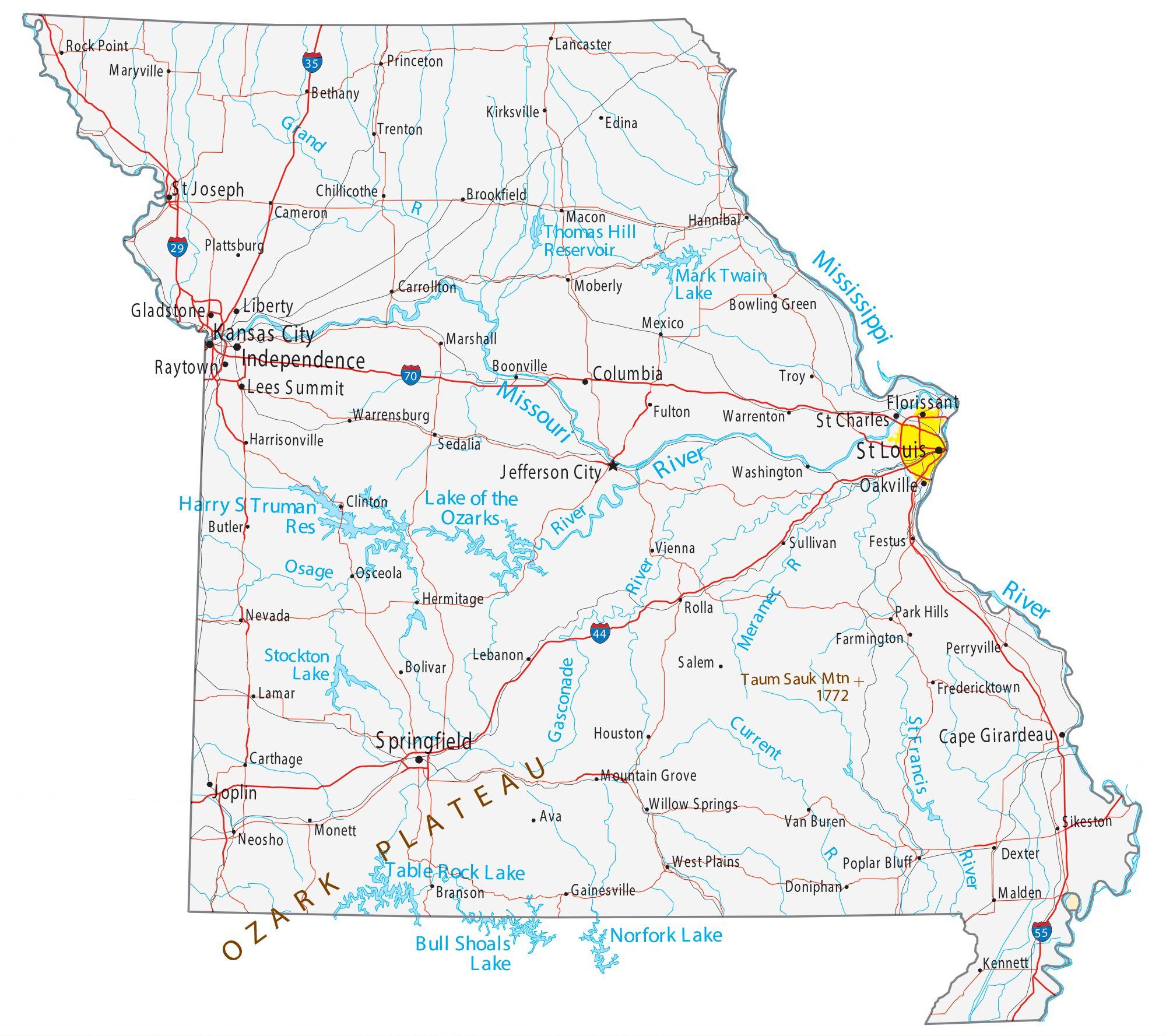About Missouri Septic Tank Laws
Missouri’s septic tank laws are essential for ensuring public health and environmental safety. Understanding these regulations helps homeowners and professionals install, maintain, and manage septic systems responsibly. This guide breaks down the key aspects of Missouri septic tank laws, covering permits, compliance, costs, and resources to stay informed and compliant.
Table of Contents
- About Missouri Septic Tank Laws
- State-Specific Regulations
- Compliance Information
- Local Resources and Contact Information
- Supportive Resources
- FAQs About Missouri Septic Tank Regulations
State-Specific Regulations
Installation Permits
In Missouri, obtaining a permit is mandatory before installing or repairing a septic system. The Missouri Department of Health and Senior Services (DHSS) oversees septic system regulations through local health departments. Permit fees typically range from $150 to $500, depending on the county and system complexity. Applications must include site plans, soil tests, and system designs.
Septic Tank Size and Placement
Septic tank sizing in Missouri depends on household size and wastewater volume. Tanks must meet minimum capacity requirements set by Missouri health department guidelines. For instance, a three-bedroom home generally requires a tank with a 1,000-gallon capacity. Drain field placement must follow setback distances, including:
- 50 feet from any water supply wells.
- 10 feet from property lines.
- 5 feet from building foundations.
These rules ensure safe wastewater treatment and protect public health.
Wastewater Disposal
Missouri sewage disposal standards focus on preventing contamination of water sources. The state’s wastewater management laws regulate the treatment of household wastewater, emphasizing on-site sewage treatment systems (OSTS). Systems must comply with effluent quality standards, and alternative treatment methods like aerobic systems are encouraged in challenging soil conditions.
Maintenance and Pumping
Routine maintenance and pumping are vital for septic system longevity. Missouri health department septic guidelines recommend pumping tanks every 3 to 5 years. Regular inspections are also advised to identify issues early and maintain compliance with Missouri environmental quality standards.
Compliance Information
Potential Fines and Penalties
Non-compliance with Missouri septic tank laws can result in fines or legal action. Homeowners who fail to obtain permits or adhere to maintenance requirements may face penalties ranging from $250 to $1,000 per violation. Additionally, improper disposal of wastewater can lead to environmental damage, escalating costs further.
Environmental Protections
Missouri environmental quality standards prioritize the protection of water bodies and soil integrity. Unique to Missouri, regulations restrict system installations near sensitive ecological zones like wetlands and floodplains. These measures ensure sustainable wastewater management and safeguard natural resources.
Cost Information
Understanding the financial aspects of septic system installation and maintenance is crucial for homeowners. Typical costs in Missouri include:
- Permit Fees: $150 to $500, depending on the county.
- Pumping Costs: $200 to $400 per service, varying by tank size and location.
- Installation Estimates: $3,000 to $10,000 for standard systems; advanced systems like aerobic treatment units can cost $10,000 to $20,000.
These costs highlight the importance of budgeting for long-term septic system care.
Local Resources and Contact Information
Homeowners and professionals can access valuable resources through state and local agencies. Key contacts include:
- Missouri Department of Health and Senior Services: Overseeing statewide septic regulations.
- Local Health Departments: Providing permits, inspections, and guidance.
- Missouri Department of Natural Resources (DNR): Enforcing environmental quality standards.
Certified septic professionals and engineers can also assist with system design, installation, and maintenance.
Contacting the Missouri Water Protection Program
Missouri Department of Natural Resources
Water Protection Program
P.O. Box 176
Jefferson City, MO 65102 0176
1-800-361 4827 or
(573) 751-1300 office
Supportive Resources
For further assistance, explore these trusted resources:
- DHSS Septic System Guidelines: Detailed regulations and forms for Missouri on-site sewage treatment systems (OSTS).
- Missouri DNR Resources: Information on wastewater permits and environmental quality standards.
- Professional Associations: Certified installers and service providers with expertise in Missouri wastewater management.
Homeowners can also access downloadable guides and infographics to simplify compliance and maintenance.
Missouri Department of Health and Senior Services (DHSS) – On-Site Wastewater Treatment
https://health.mo.gov/living/environment/onsite/
Missouri Department of Natural Resources (DNR) – Wastewater Resources
https://dnr.mo.gov/water/business-industry-other-entities/wastewater
EPA – Septic Smart Homeowner Guide
https://www.epa.gov/septic/septic-smart-homeowners
FAQs About Missouri Septic Tank Regulations
What are the main Missouri septic tank regulations homeowners must follow?
In Missouri, homeowners need to comply with various guidelines concerning the installation, maintenance, and discharge of septic systems. Key regulations include adhering to the Missouri Department of Health and Senior Services (DHSS) guidelines for system design and sizing, following wastewater treatment system installation standards, and ensuring proper maintenance intervals. It’s crucial to obtain proper septic permits before installation or major repairs Missouri Smallflows Organization.
How do I get a Missouri septic permit for a new system installation?
To get a Missouri septic permit, you need to contact your local health department or county agency. The permit process typically involves submitting detailed plans of your wastewater system, proof of site evaluations, and soil tests to determine the suitability for a septic system. Jefferson County and other counties follow specific ordinances about on-site sewage treatment systems Jefferson County, MO. You can learn more at the Jefferson County Codes & Ordinances Jefferson County, MO.
What are Missouri environmental quality standards for wastewater treatment systems?
Missouri wastewater treatment systems must adhere to strict environmental quality standards to prevent groundwater and surface water contamination. These regulations include maintaining proper distances between septic tanks and wells, ensuring soil permeability assessments, and following treatment system discharge guidelines Missouri Smallflows Organization. Compliance with these guidelines helps maintain public health and protect the environment.
How often should a septic tank be pumped in Missouri?
Septic tank maintenance in Missouri usually requires professional inspections every 2-5 years. Factors like household size, tank capacity, and usage affect how often pumping is necessary. Regular maintenance ensures that solids are properly removed, avoiding system overloads and potential environmental contamination Missouri Smallflows Organization.
What are Missouri sewage disposal standards that homeowners must meet?
The Missouri sewage disposal standards include specific criteria for wastewater disposal methods. Septic systems should follow the Missouri Department of Health guidelines and local wastewater management codes. Compliance ensures that household sewage is appropriately treated and safely discharged, minimizing risks to public health and the environment Jefferson County, MO.
What should I do if my Missouri septic system starts to fail?
If your septic system begins to fail, you should seek immediate professional intervention. Missouri regulations recommend obtaining certified contractors to inspect, diagnose, and repair issues. Common solutions include septic tank pumping, replacing damaged components, or redesigning your system to meet environmental and health department guidelines Missouri Smallflows Organization.
How do Missouri wastewater management laws protect homeowners and the environment?
Missouri wastewater management laws enforce strict guidelines for the treatment and disposal of wastewater, which include compliance with DHSS and local wastewater ordinances. These regulations protect public health by ensuring that wastewater is treated adequately before discharge, avoiding contamination of wells, rivers, and groundwater Jefferson County, MO. Visit Missouri DHSS On-Site Sewage Treatment for detailed guidelines.
Directory | Washington Septic Service Providers | Part 1
DIY Repairs Are Always Cheaper
Septic Regulations in Rural Areas: Essential Guide for Rural Property Owners
The Role of Perforated Pipes in Drain Fields
What Happens During a Pumping Service?
Septic Tanks vs. Sewer Systems | Choosing the Right Option







